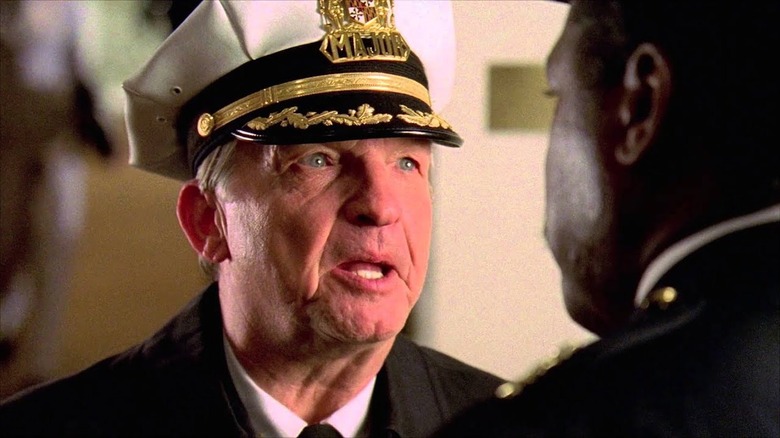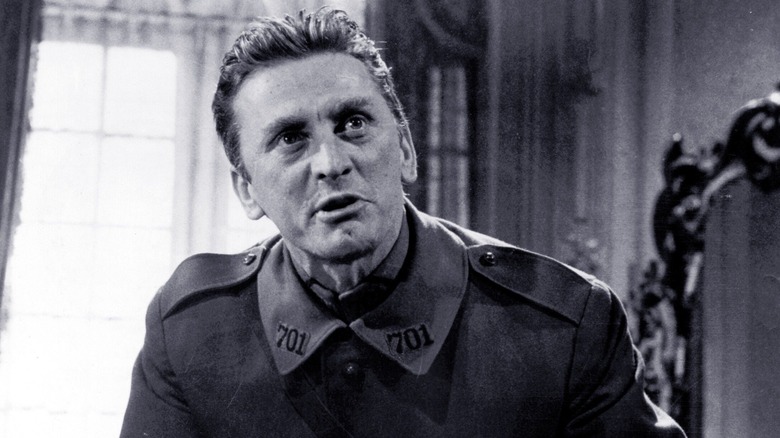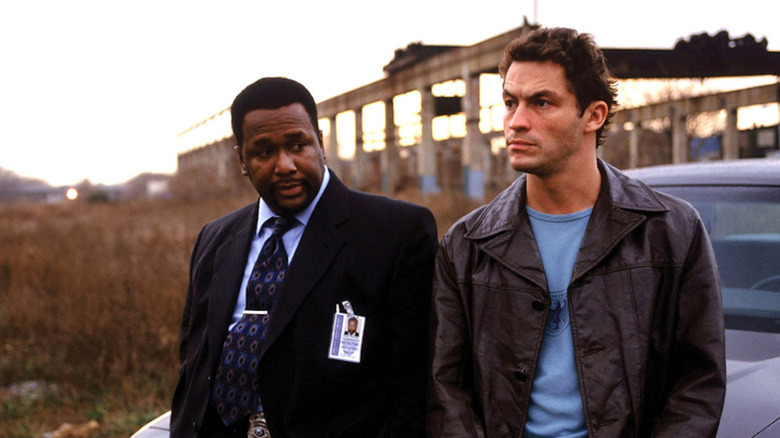How This Stanley Kubrick War Movie Influenced HBO's The Wire
We may receive a commission on purchases made from links.
"The Wire" is the defining 21-century portrait of top-down institutional failure in the United States. Over five seasons, creator David Simon and his brilliant team of writers used the whole of Baltimore, from the corruption of City Hall to the get-over-or-get-dead hustle of housing projects, as a microcosm that demonstrates in excruciating detail how the War on Drugs and mass incarceration are destroying urban communities all over the country. Admirers have often hailed the show for its Dickensian scope, but Simon cites a different, somewhat surprising influence for its withering social critique.
Stanley Kubrick's "Paths of Glory" is the greatest film ever made about the "The Great War." It's a bitterly angry tale about status-conscious French generals punishing underlings for failing to plunge headlong into a meat grinder. Kirk Douglas stars as a principled colonel who defends three low-ranking soldiers court-martialed for cowardice — i.e. refusing to go over the top of their trench to charge down German machine guns in a doomed-to-fail mission. If convicted, they will be executed. It's a show trial intended to scare soldiers into obeying foolish, most likely fatal orders. You'll either get shredded by blazing hot lead in No Man's Land or take a solitary bullet to the heart by firing squad. You get to choose how your life will get squandered.
The less-than-great war on drugs
How does "Paths of Glory" link up with "The Wire?" In an interview with peak-television guru Alan Sepinwall, Simon averred, "If anyone wants to look at 'Paths of Glory' and think it doesn't speak to the essential triumph of institutions over individuals and doesn't speak to the fundamental inhumanity of the 20th century and beyond, then they weren't watching the same film as the rest of us." Simon goes on to compare Kubrick's high-ranking villains (played by Adolph Menjou and George Macready) to his show's wily, upper-management duo of Stan Valchek (Al Brown) and William Rawls (John Doman). These are men who treat their charges as promotion-enabling pawns. When their performance falters, which it's designed to do, they get ahead by punishing scapegoats.
This points up another unheralded aspect of "The Wire," one that miffs Simon. Though the show is celebrated for its nuanced portrayals of morally compromised characters, it does not lack for "bad guys." "I was always amazed by that," said Simon. "Marlo's not a bad guy? Do characters acquire a bit of nuance as you live with them longer? Of course. It doesn't matter whether Adolph Menjou and George Macready show you their warm fuzzy side and assert that they have puppies at home. They serve their role in the story."
The acquisition of cannon fodder
Throughout "The Wire," the street-level Baltimore officers are flung over and over again unto the breach of an impossible task. Their objective is to rid the street not just of drug dealers, but drugs altogether. They're not asked to consider the woeful conditions that have created this market. They're only supposed to do what is asked of them. The dealers have their foot soldiers, too. How they recruit them comes into tight, tragic focus in the series' fourth season. Americans are at war with each other for nonsensical reasons that serve the amoral ends of power-hungry individuals, and the system is built to punish us when we refuse to join the battle. "Paths of Glory" and "The Wire" are not comforting works of art, but, by god, are they essential.


